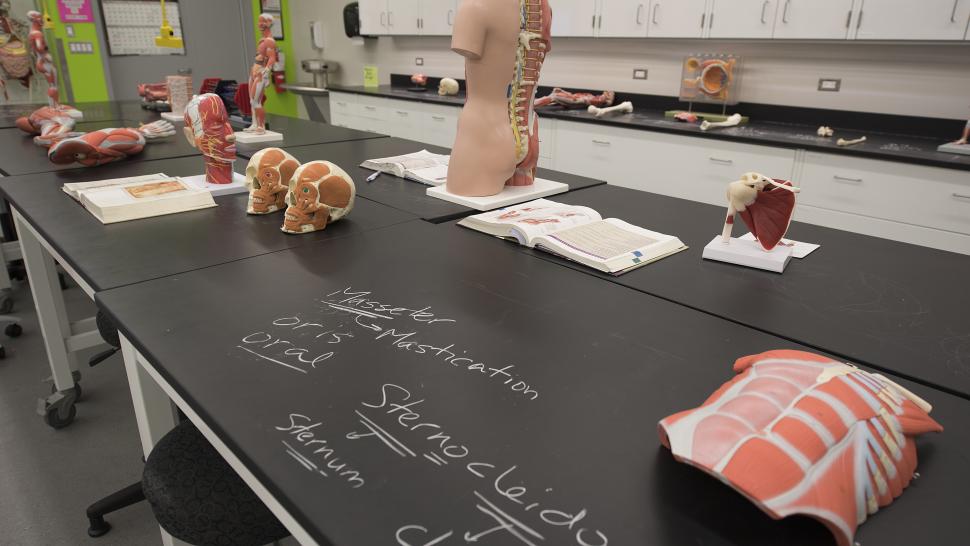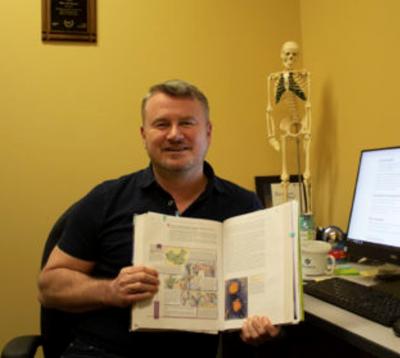
Humber College’s strategic plan, Humber Tomorrow, renews and updates its commitment to students, faculty and staff in an academic environment that looks very different than it did at the beginning of 2020. Part of the plan is to increase digital fluency and diversify online offerings.
“Students' needs for learning flexibility and for better access to post-secondary opportunities have expanded - not just because of the pandemic, but certainly at a more rapid pace as a result of it,” said Sarah Peake, associate dean of Flexible Learning.
Professors across the college are finding innovative ways to meet those needs - and they just received a boost. ECampusOntario recently funded 11 online learning projects the college has a hand in developing. Two of them, a virtual interactive physiology lab and a sustainable tourism future course, are led by Humber faculty.
“These projects also meet industry demands for specialized training in progressively more digital work environments. In the long run, this will benefit Humber students too,” said Peake.
“Learning is more impactful when the student participates.”
Humber Bioscience professor Ron Stewart ran into the same problem as many educators at the onset of the COVID-19 pandemic - How do you recreate a polytechnic experience online?
Stewart’s challenge was exceptionally difficult because his physiology students are used to being in a lab, drawing blood and testing heart activity.
Humber College has three Bioscience labs at its North Campus. Two are physiology and anatomy labs which mirror each other, joined in the middle by a cadaver lab – and they all had restricted access as part of Humber’s COVID-19 precautions.
“Theory and anatomy textbooks are publicly available, but I couldn’t find an accessible, interactive physiology lab for students,” he said. 
“Anatomy is one thing – it's naming structures. Physiology is understanding how the anatomy works and how the different systems are integrated with each other.”
Stewart and the Bioscience lab staff, Geoffrey Collins, Greg Hesketh and Carolyn Perry, received $25,000 to create a free, interactive physiology lab for post-secondary students in Ontario.
They are developing five interactive modules which include PowerPoint presentations, interactive videos of physiological experiments and 3D model images.
“With an interactive video of an experiment, students can follow along and the module describes it. We run the experiment and they predict the values as we go through,” said Stewart.
When learning about blood pressure, for example, students can predict values as the test subject rides an exercise bicycle. In the next slide, they’ll see if they got it right.
“They’re predicting, watching, monitoring and getting feedback,” said Stewart.
Once the course is launched, Humber and other Ontario post-secondary institutions will be able to add content to customize their teaching.
Regenerative ideas
Humber’s Faculty of Business is taking the lead on an online tourism course in partnership with the University of Guelph and the University of Waterloo.
The course, Sustainable Tourism Future, will be tailored to upper-year students and survey the post-pandemic tourism and hospitality landscape. According to Travel Services Management professor Culum Canally, the focus will be on developing innovative, sustainable ways to rebuild the distressed industry in a rapidly shifting geo-political climate. 
“We saw an opportunity to create a course to contribute to Humber’s Faculty of Business Tourism programs and to introduce the concept of sustainability in a more complex manner than before,” said Canally.
Twelve course modules will focus on a specific issue or topic in regenerative tourism, including the United Nations’ Sustainable Development Goals, a feminist approach to tourism and a power analysis of tourism.
Each module will contain course texts, a mini lecture with a slideshow and slide deck and a recorded presentation.
There will also be a forum where students can discuss material while the instructor acts as the facilitator.
According to Canally, Humber’s partnership with other post-secondary institutions is critical to innovation, change making and student experience.
“Faculty might collaborate on a special issue of a journal, a textbook or a research project, but the funding has helped us collaborate on something student-facing in a very distinct manner,” he said.
“This is one of the few scenarios in which we would get together across colleges and universities.”
Canally and his colleagues want to encourage engagement with regenerative and sustainable tourism and appeal to instructors and facilitators beyond the partner institutions.
IT assistance
Once the new courses are up and running, a group of digital learning experts are on call to help students navigate their way through online learning.
According to Mark Ihnat, associate dean of Digital Learning, the team receives thousands of emails – and each one gets a reply.
“We have a small but mighty crew that handles all the IT tickets, phone calls and chat requests related to student support.”
Once a student logs on to Blackboard or Microsoft Teams, for example, they may have trouble finding their grades or navigating to their assignment calendar.
Ihnat and his colleagues can help them access the tools they need and increase their digital fluency.
The team also created Humberonline.ca, a resource that links to all Humber’s online learning supports and programs.
"It’s about building experiences, critical analysis, meeting learning outcomes that matter and allowing students to recognize, this is not just about knowing something, it’s about doing,” said Ihnat.
Humber’s latest interactive online courses will give students plenty to do in a format that’s accessible, free and always evolving.
For more information on eCampusOntario-funded projects, visit vls.ecampusontario.ca/